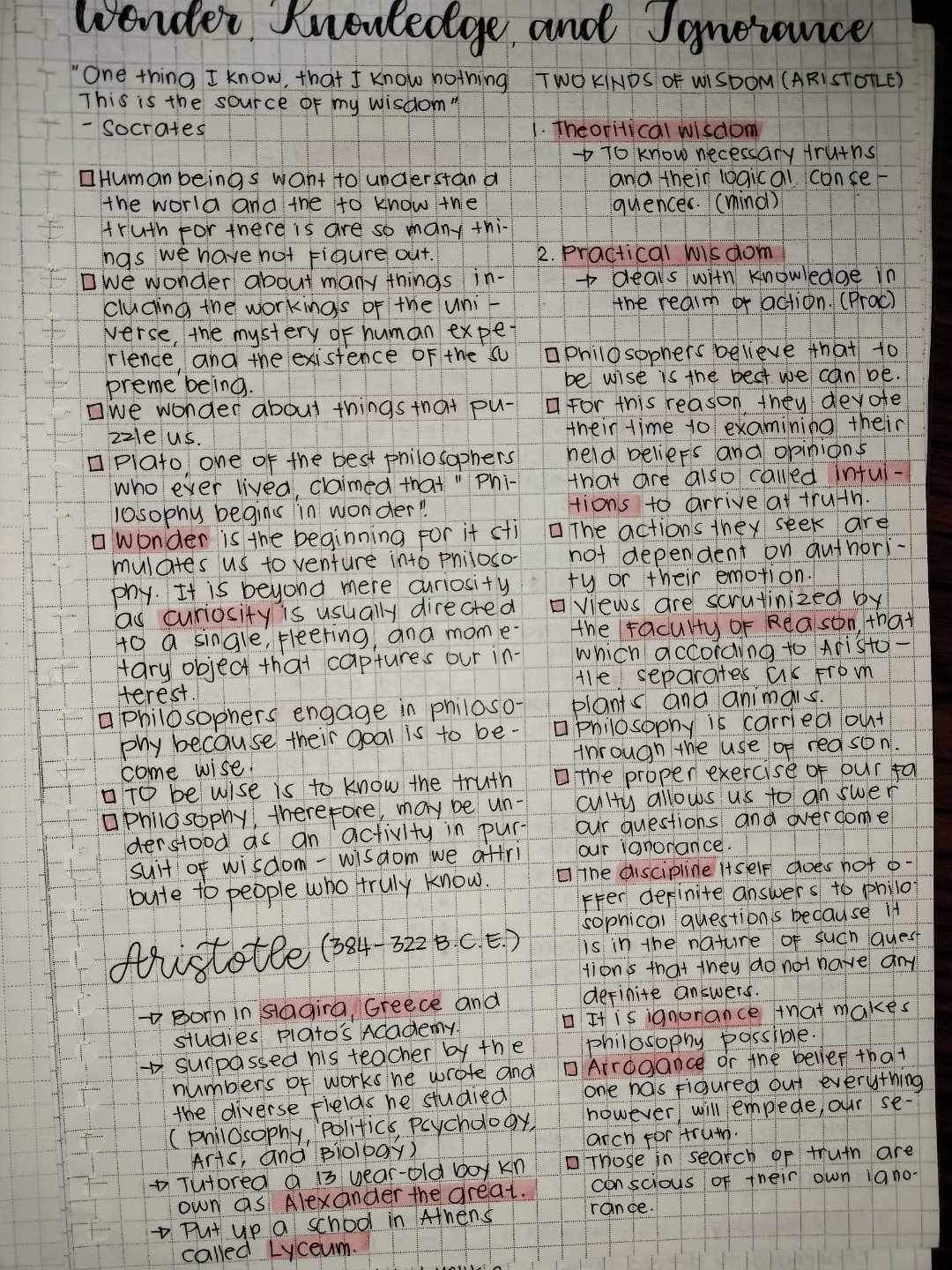What are the concepts of knowledge and ignorance as discussed by Socrates and Aristotle?

Understand the Problem
The question appears to be exploring the concepts of knowledge and ignorance as discussed by philosophers like Socrates and Aristotle. It includes definitions, ideas about wisdom, and the philosophical quest for truth.
Answer
Socrates: Wisdom is acknowledging ignorance. Aristotle: Two types of wisdom— theoretical and practical.
Socrates believed acknowledging one's ignorance is essential for wisdom. Aristotle identified two types of wisdom: theoretical (knowledge of truths and logic) and practical (knowledge applied in action).
Answer for screen readers
Socrates believed acknowledging one's ignorance is essential for wisdom. Aristotle identified two types of wisdom: theoretical (knowledge of truths and logic) and practical (knowledge applied in action).
More Information
Socrates' famous quote 'One thing I know, that I know nothing' highlights his perspective on self-awareness and ignorance, promoting an endless pursuit of knowledge. Aristotle's division of wisdom into theoretical and practical reflects his belief in the broad application of knowledge, encompassing both intellectual understanding and practical skills.
Tips
A common mistake is to assume that Socrates' acknowledgment of ignorance implies a lack of desire for knowledge. In fact, it drives his pursuit of learning. Similarly, misunderstanding Aristotle's distinction between theoretical and practical wisdom can lead to an incomplete understanding of his philosophy.
Sources
- Socrates' Conception of Knowledge and the Priority of Definition - vtechworks.lib.vt.edu
- Theory of Knowledge - penelope.uchicago.edu
- A Guide to Socratic Ignorance - ThoughtCo - thoughtco.com
AI-generated content may contain errors. Please verify critical information